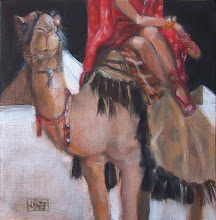New Documentary Film Explores Muslim Experience in America
"The film portrays the experience of Muslim Americans by examining various Muslim communities across America, from big cities in the East to small towns in the Midwest. The film focuses heavily on the voices of ordinary American Muslims and how Muslims fit into contemporary American society.The research team traced the roots of Islam in America back to Sapelo Island, off the coast of Georgia. There they met a descendant of an African slave brought to the country in the 19th century. They also visited the oldest mosque in America in Cedar Rapids, Iowa. The film team conducted interviews with Muslim and non-Muslim students, political and religious leaders, and community members to explore the breadth of socio-cultural perception of the Muslim-American community and the attitudes of that community."
Muslim Americans Find Their Voice Through Advocacy, Engagement
Muslim organizations bringing message of inclusiveness, involvement
The Muslim Public Affairs Council is part of a growing constellation of national organizations that are making Muslim voices and views heard. They include the large and influential Islamic Society of North America, the advocacy group Council on American-Islamic Relations, and the New York-based American Society for Muslim Advancement, which stresses its work in interfaith activities and cultural exchanges. Two active legal organizations have emerged as well: Muslim Advocates, founded in 2005, and the nearly 500-member National Association of Muslim Lawyers.
Diversity, Faith Define Evolving Identity of Muslim Americans
Muslim Americans forging a community that “flourishes in democracy”
They are Muslim and American — and constitute part of a remarkable community that, in large measure, mirrors the diversity of the United States itself.Muslims in the United States come from 80 different countries and tend to be younger, better educated and in more highly skilled or professional careers than the general population, says Zahid Bukhari of the Georgetown University-based Center for Muslim-Christian Understanding.
Along with their varied ethnic identities, they are Sunni and Shiite — and range from orthodox to secular in their beliefs. They comprise recent immigrants as well as younger generations born in the United States, according to a 2007 survey by the Pew Research Center.
“We are the only country where you have a representation of the global Muslim community,” says Daisy Khan, executive director of the American Society for Muslim Advancement. “You can call us a mini-hajj — and an opportunity to be a model community for others.”












No comments:
Post a Comment